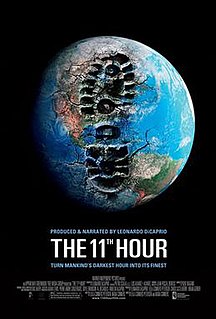 W
WThe 11th Hour is a 2007 documentary film on the state of the natural environment created, produced, co-written and narrated by Leonardo DiCaprio. It was directed by Leila Conners Petersen and Nadia Conners and financed by Adam Lewis and Pierre André Senizergues, and distributed by Warner Independent Pictures.
 W
WThe baiji is a possibly extinct species of freshwater dolphin. It is thought to be the first dolphin species driven to extinction due to the impact of humans. Despite being listed as “critically endangered: possibly extinct” by the IUCN, this dolphin has not been seen in almost 20 years and several surveys of the Yangtze have failed to find it. In China, the species is also called the Chinese river dolphin, Yangtze river dolphin, Yangtze dolphin and whitefin dolphin. Nicknamed the "Goddess of the Yangtze", it was regarded as the goddess of protection by local fishermen and boatmen. It is not to be confused with the Chinese white dolphin or the finless porpoise.
 W
WOn 30 November 2007, the business leaders of 150 global companies published a communiqué to world leaders calling for a comprehensive, legally binding United Nations framework to tackle climate change.
 W
WBiùtiful cauntri is a 2007 Italian documentary film about illegal toxic waste dumping in Southern Italy. It was directed by Esmeralda Calabria and Andrea D'Ambrosio and written by Calabria, D'Ambrosio and Peppe Ruggiero. It focuses on the progressive poisoning of thousands of square miles of Southern Italian agricultural land and the deadly effects upon people, animals, and plant life in the areas of Caserta and Naples, and behind that the interwoven relations between the Italian government, corrupt pseudo-legitimate businessmen, and the Italian organized crime group, the Camorra. A secondary focus of the film is governmental inaction, in some cases lasting over a decade and a half, despite the pleas of the people affected.
 W
WBlessed Unrest: How the Largest Movement in the World Came into Being and Why No One Saw It Coming is a 2007 New York Times bestseller by Paul Hawken. The book is about the many non-profit groups and community organizations, dedicated to many different causes, which Hawken calls the "environmental and social justice movement". Hawken explains that this is a diverse movement with no charismatic leader. The movement follows no unifying ideology, and is not recognized by politicians, the public and the media. But, Hawken argues, it has the potential to benefit the planet.
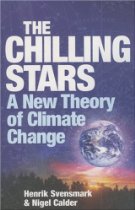 W
WThe Chilling Stars is a non-fiction book about the possible causes and effects of global climate change by Henrik Svensmark and Nigel Calder. The paperback version was published by Totem Books on March 19, 2003. An updated version titled The Chilling Stars: A New Theory of Climate Change was published in 2007. Svensmark is otherwise known as a Danish physicist and professor while Calder had worked as a science journalist.
 W
WThe Clean Tech Revolution: The Next Big Growth and Investment Opportunity is a 2007 book by Ron Pernick and Clint Wilder, who say that commercializing clean technologies is a profitable enterprise that is moving steadily into mainstream business. As the world economy faces challenges from energy price spikes, resource shortages, global environmental problems, and security threats, clean technologies are seen to be the next engine of economic growth.
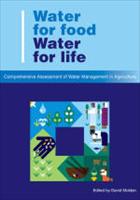 W
WThe report A Comprehensive Assessment of Water Management in Agriculture was published in 2007 by International Water Management Institute and Earthscan in an attempt to answer the question: how can water in agriculture be developed and managed to help end poverty and hunger, ensure environmentally sustainable practices, and find the right balance between food and environmental security?
 W
WA Contract with the Earth is a book by Newt Gingrich and Terry L. Maple, with a foreword by E. O. Wilson. Its title is derived from a 10-point "contract" the authors put forward in the book.
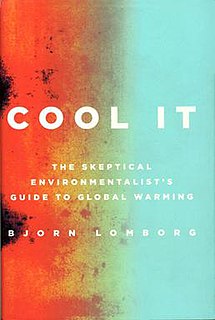 W
WCool It: The Skeptical Environmentalist's Guide to Global Warming is a book by the Danish statistician and political scientist Bjørn Lomborg. The book is a sequel to The Skeptical Environmentalist, which in English translation brought the author to world attention. Lomborg argues that many of the elaborate and expensive actions being considered to stop global warming will cost hundreds of billions of dollars without the same return on investment, often are based on emotional rather than strictly scientific assumptions, and may have very little impact on the world's temperature for centuries. Lomborg concludes that a limited carbon tax is needed in the First World as well as subsidies from the First World to the Third World to help fight ongoing humanitarian crises.
 W
WThe Cosco Busan oil spill occurred at 08:30 UTC-8 on 7 November 2007 between San Francisco and Oakland, California, in which 53,569 US gal (202,780 L) of IFO-380 heavy fuel oil, sometimes referred to as "bunker fuel", spilled into San Francisco Bay after the container ship Cosco Busan, operated by Fleet Management Limited struck Delta Tower of the San Francisco–Oakland Bay Bridge in thick fog.
 W
WEarth is a 2007 nature documentary film which depicts the diversity of wild habitats and creatures across the planet. The film begins in the Arctic in January of one year and moves southward, concluding in Antarctica in the December of the same year. Along the way, it features the journeys made by three particular species—the polar bear, African bush elephant and humpback whale—to highlight the threats to their survival in the face of rapid environmental change. A companion piece to the 2006 BBC/Discovery television series Planet Earth, the film uses many of the same sequences, though most are edited differently, and features previously unseen footage.
 W
WEnergy and American Society: Thirteen Myths is a 2007 book about energy security and climate change, edited by Benjamin K. Sovacool and Marilyn A. Brown. The book is suitable for both technical and non-technical audiences since it is written in plain English and is "easily digested by anyone with a rudimentary background or interest in energy economics".
 W
WEnergy Victory: Winning the War on Terror by Breaking Free of Oil is a 2007 book by Robert Zubrin. Zubrin's central argument is that the decisive front in the War on Terror is America's struggle for energy independence. He outlines the manner in which radical Islam has been financed by oil revenues, the technological feasibility of ethanol-fueled vehicles as well as the economic and agricultural imperatives for ethanol production, and the environmental implications of his plan.
 W
WThe Great Global Warming Swindle is a polemical documentary film that denies the scientific consensus about the reality and causes of climate change. It justifies this by suggesting that climatology is influenced by funding and political factors. The program was formally criticised by Ofcom, the UK broadcasting regulatory agency, which upheld complaints of misrepresentation made by David King.
 W
WGreenhouse Solutions with Sustainable Energy is a 2007 book by Australian academic Mark Diesendorf. The book puts forward a set of policies and strategies for implementing the most promising clean energy technologies by all spheres of government, business and community organisations. Greenhouse Solutions with Sustainable Energy suggests that a mix of efficient energy use, renewable energy sources and natural gas offers a clean and feasible energy future for Australia.
 W
WHow to Live a Low-Carbon Life: The Individual's Guide to Stopping Climate Change is a 2007 book by Chris Goodall, published by Earthscan/Routledge.
 W
WAn Inconvenient Book: Real Solutions to the World's Biggest Problems is a 2007 political narrative written and edited by conservative commentator Glenn Beck.
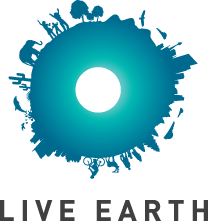 W
WLive Earth was an event developed to increase environmental awareness through entertainment.
 W
WLive Earth was a one-off event developed to combat climate change. The first series of benefit concerts were held on July 7, 2007. The concerts brought together more than 150 musical acts in eleven locations around the world which were broadcast to a mass global audience through televisions, radio, and streamed via the Internet.
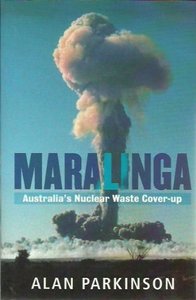 W
WMaralinga: Australia’s Nuclear Waste Cover-up is a book by Alan Parkinson about the clean-up of the British atomic bomb test site at Maralinga in South Australia, published in 2007. Parkinson, a nuclear engineer, explains that the clean-up of Maralinga in the late 1990s was compromised by cost-cutting and simply involved dumping hazardous radioactive debris in shallow holes in the ground. Parkinson states that "What was done at Maralinga was a cheap and nasty solution that wouldn't be adopted on white-fellas land."
 W
WThe Memorandum of Understanding concerning Conservation Measures for the Eastern Atlantic Populations of the Mediterranean Monk Seal is a multilateral environmental memorandum of understanding (MoU) and entered into effect on 18 October 2007, under the auspices of the Convention on Migratory Species of Wild Animals (CMS), also known as the Bonn Convention. It focuses on the protection of the eastern Atlantic populations of the Mediterranean monk seal. The MoU covers four range states, all of which have signed.
 W
WThe New Green Consumer Guide is a book written by Julia Hailes on green consumerism. The guide explores how one can consume goods and services in an environmentally friendly manner. Topics discussed include travel, transport, food and drink, home and garden, fashion and cosmetics.
 W
WNuclear Nebraska: The Remarkable Story of the Little County That Couldn’t Be Bought is a 2007 book by Susan Cragin which follows the controversy about a proposed low level nuclear waste dump, which was planned for Boyd County, Nebraska.
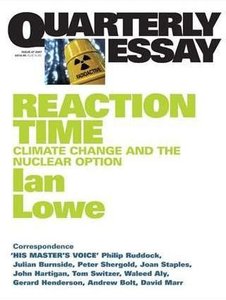 W
WReaction Time: Climate Change and the Nuclear Option is a book by Professor Ian Lowe which was officially launched by science broadcaster Robyn Williams at the Writers' Festival in Brisbane in September 2007. The book is about energy policy, and Lowe argues that nuclear power does not make sense on any level: economically, environmentally, politically or socially.
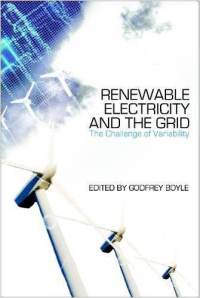 W
WRenewable Electricity and the Grid: The Challenge of Variability is a 2007 book edited by Godfrey Boyle which examines the significance of the issue of variability of renewable energy supplies in the electricity grid.
 W
WScorcher: The Dirty Politics of Climate Change is a 2007 book by Clive Hamilton which contends that Australia rather than the United States is the major stumbling block to a more effective Kyoto Protocol. In the final chapter of the book Hamilton argues that "the Howard Government has been actively working to destroy the Kyoto Protocol".
 W
WSix Degrees: Our Future on a Hotter Planet, ISBN 978-0-00-720905-7 is a 2007 non-fiction book by author Mark Lynas about global warming. The book looks and attempts to summarize results from scientific papers on climate change.
 W
WThe MT Hebei Spirit oil spill was a major oil spill in South Korea that began on the morning of 7 December 2007 local time, with ongoing environmental and economic effects. Government officials called it South Korea's worst oil spill ever, surpassing a spill that took place in 1995. This oil spill was about one-third of the size of the Exxon Valdez oil spill.
 W
WThe Memorandum of Understanding (MoU) on the Conservation of Southern South American Migratory Grassland Bird Species and Their Habitats is a Multilateral Environmental Memorandum of Understanding concluded under the auspices of the Convention on Migratory Species of Wild Animals (CMS), also known as the Bonn Convention and became effective on 26 August 2007. Under the “umbrella” of the CMS, the governments of Argentina, Bolivia, Paraguay and Uruguay agreed to work together towards better conservation of migratory species of grassland birds of Southern South America. The MoU covers five range States, all of which have signed.
 W
WThe Story of Stuff is a short animated documentary about the lifecycle of material goods. The documentary is critical of excessive consumerism and promotes sustainability.
 W
WThe Sydney Tar Ponds were a hazardous waste site on Cape Breton Island in Nova Scotia, Canada.
 W
WA Thousand Barrels a Second: The Coming Oil Break Point and the Challenges Facing an Energy Dependent World is a 2007 book by Canadian energy economist and columnist Peter Tertzakian that describes the multiple pressures forcing an upending of oil's dominant role in the global energy supply mix and conjectures about how economic, social and technological innovation will drive the inevitable adjustment process.
 W
WThe 2007 United Nations Climate Change Conference took place at the Bali International Conference Centre, Nusa Dua, in Bali, Indonesia, between December 3 and December 15, 2007. Representatives from over 180 countries attended, together with observers from intergovernmental and nongovernmental organizations. The conference encompassed meetings of several bodies, including the 13th Conference of the Parties to the United Nations Framework Convention on Climate Change, the 3rd Meeting of the Parties to the Kyoto Protocol, together with other subsidiary bodies and a meeting of ministers.
 W
WThe Water Resources Development Act of 2007 or WRDA 2007 is a United States law that reauthorized the Water Resources Development Act (WRDA), and authorized flood control, navigation, and environmental projects and studies by the United States Army Corps of Engineers. However, the law does not appropriate funds for those projects and programs. It was passed by the 110th United States Congress on November 8, 2007 over President George W. Bush's veto.
 W
WWestern Climate Initiative, Inc. (WCI) is a 501(c)(3) non-profit corporation which administers the shared emissions trading market between the American state of California and the Canadian province of Quebec as well as separately administering the emissions trading market of the Canadian province of Nova Scotia. It also provides administrative, technical and infrastructure services to support the implementation of cap-and-trade programs in other North American jurisdictions. The organization was originally founded in February 2007 by the governors of five western states with the goal of developing a multi-sector, market-based program to reduce greenhouse gas emissions; it was incorporated in its current form in 2011.
 W
WWhat A Way To Go: Life at the End of Empire is a 2007 documentary film about the current situation facing humanity and the world. It is written, directed and narrated by Timothy S. Bennett.
 W
WWittenoom is a declared contaminated site and former townsite 1,420 kilometres (880 mi) north-north-east of Perth, in the Hamersley Range in the Pilbara region of Western Australia. The declared contaminated site comprises 50,000 hectares, making it the "largest contaminated site in the southern hemisphere."
 W
WThe World Without Us is a 2007 non-fiction book about what would happen to the natural and built environment if humans suddenly disappeared, written by American journalist Alan Weisman and published by St. Martin's Thomas Dunne Books. It is a book-length expansion of Weisman's own February 2005 Discover article "Earth Without People". Written largely as a thought experiment, it outlines, for example, how cities and houses would deteriorate, how long man-made artifacts would last, and how remaining lifeforms would evolve. Weisman concludes that residential neighborhoods would become forests within 500 years, and that radioactive waste, bronze statues, plastics, and Mount Rushmore would be among the longest-lasting evidence of human presence on Earth.